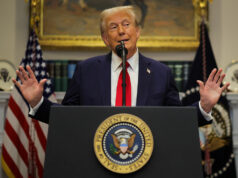Gov’t monitoring oil prices as new round of fuel excise taxes take effect
THE economic team is monitoring possible consequences of higher oil prices due to the Iran crisis, which broke at a time when the government is due to impose new fuel excise taxes, presenting a threat to inflation and growth assumptions.
The crisis could also dent overseas employment, a major source of foreign exchange for the economy, with the air force placed on standby Sunday to mount evacuation flights to Iran and Iraq.
The President’s spokesman, Salvador S. Panelo, said at a briefing that Socioeconomic Secretary Ernesto M. Pernia and the rest of the economic team are on alert for the possible impact of higher crude oil prices after the US launched an air stroke that killed a senior Iranian general in Iraq Friday.
The air strike killed Iranian Quds Force Commander Qasem Soleimani and Iraqi militia leader Abu Mahdi al-Muhandis. The Iranian government said it will take revenge against the US.
“I’m sure our economic bodies, ginagawa lahat lahat ipagtugunan ng anuman krisis na darating (I’m sure our economic bodies are doing all they can to address whatever crisis emerges),” Mr. Panelo said.
Leody Q. De Guzman, president of labor group Bukluran ng Manggagawang Pilipino (BMP) on Sunday called on the government to suspend the third tranche of excise taxes on petroleum products under the Tax Reform for Acceleration and Inclusion (TRAIN) law.
The President on Sunday ordered the Armed Forces of the Philippines (AFP) to plan for potential evacuations from Iran and Iraq. — Gillian M. Cortez



